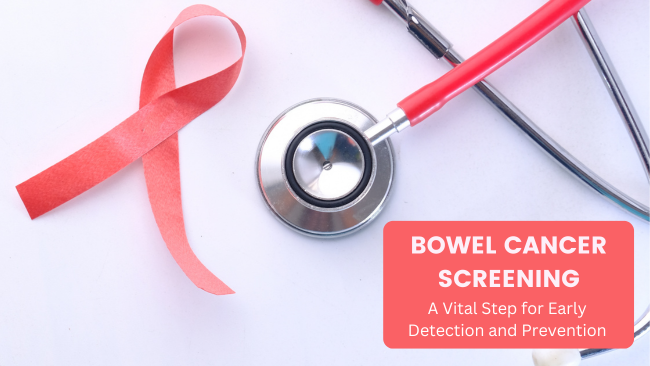The food we eat plays a significant role in our overall health and well-being. It is well-known that a healthy diet can reduce the risk of various chronic diseases. But can diet also affect the risk of bowel cancer? Bowel cancer, also known as colorectal cancer, is a prevalent and potentially deadly disease. In this article, we will explore the connection between diet and bowel cancer risk, and the role of family doctors, GP clinics, and chronic disease GPs in Adelaide in providing guidance on dietary choices for cancer prevention.
Understanding Bowel Cancer Risk Factors
Before delving into the impact of diet on bowel cancer risk, it's important to understand the key risk factors associated with the disease. These include age, family history, genetics, inflammatory bowel disease, sedentary lifestyle, smoking, and excessive alcohol consumption. While some risk factors are beyond our control, lifestyle factors such as diet can be modified to reduce the risk of bowel cancer.
The Role of Diet in Bowel Cancer Prevention
High-Fiber Foods: A diet rich in fiber, particularly from fruits, vegetables, whole grains, and legumes, has been associated with a lower risk of bowel cancer. Fiber helps maintain bowel regularity, reduces the time that waste stays in the colon, and dilutes potential carcinogens.
Red and Processed Meat: Consuming high amounts of red and processed meats, such as beef, pork, and bacon, has been linked to an increased risk of bowel cancer. These meats contain substances that can damage the lining of the bowel and promote the growth of cancer cells. It is advisable to limit the intake of these meats and opt for leaner sources of protein, such as poultry, fish, and plant-based alternatives.
Calcium-Rich Foods: Adequate calcium intake has been associated with a reduced risk of bowel cancer. Good sources of calcium include dairy products, leafy greens, fortified plant-based milk, and calcium supplements if necessary.
Antioxidant-Rich Foods: Antioxidants, found in fruits, vegetables, nuts, and seeds, help protect cells from damage caused by free radicals. Including a variety of antioxidant-rich foods in the diet can help reduce the risk of bowel cancer.
Alcohol Consumption: Excessive alcohol consumption has been linked to an increased risk of bowel cancer. It is advisable to limit alcohol intake or avoid it altogether to lower the risk.
The Role of Family Doctors and GP Clinics in Providing Dietary Guidance
Family doctors, GP clinics, and chronic disease GPs in Adelaide, including female GPs, play a crucial role in providing guidance on diet and lifestyle choices for cancer prevention. These healthcare professionals can assess an individual's overall health, including risk factors for bowel cancer, and offer personalized advice on dietary modifications. They can also consider factors such as age, family history, and existing medical conditions to provide tailored recommendations.
Adelaide is home to several GP clinics known for their expertise in chronic disease management and preventive care. These clinics offer a comprehensive approach to healthcare, emphasizing the importance of diet and lifestyle modifications. By seeking guidance from the best GP practice in Adelaide or Hove, individuals can receive evidence-based dietary advice, including recommendations for a bowel cancer prevention diet.
Conclusion
While diet alone cannot guarantee the prevention of bowel cancer, making conscious dietary choices can significantly reduce the risk. Consuming a diet rich in fiber, incorporating calcium-rich foods and antioxidants, limiting red and processed meats, and avoiding excessive alcohol consumption are all essential steps in lowering the risk of bowel cancer. Family doctors, GP clinics, and chronic disease GPs in Adelaide can play a pivotal role in providing guidance and support for individuals looking to make positive dietary changes. By seeking advice from these healthcare professionals.

